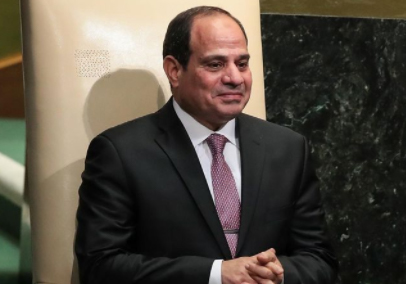
Jun 11, 2018
The ICJ today called on the Egyptian authorities to ensure that the framework on the state of emergency is comprehensively reformed consistent with the country’s international human rights obligations.
The ICJ is particularly concerned that Egypt seems to be returning to the continuous and permanent state of emergency that prevailed in Egypt, uninterrupted, from 1981 until 2012, and that resulted in grave and systematic human rights violations.
Since April 2017, President El- Sisi (photo) declared the state of emergency, renewed it, and then declared a new state of emergency five consecutive times.
“In declaring and renewing exceptional measures under the state of emergency, Egypt has consistently failed to demonstrate that the situation ‘threatens the life of the nation’, the threshold for such measures under international law,” said Said Benarbia, ICJ MENA Director.
Egypt has also failed to set out clear and precise conditions in which the President is allowed to declare the state of emergency and in which measures derogating from human rights under the state of emergency can be declared, the ICJ says.
It has also failed to ensure that each such measure is strictly limited and proportionate to the exigencies of the specific emergency, specify which rights can or cannot be subject to derogation, and notify relevant stakeholders of such derogations, the Geneva-based organization adds.
“Repealing or amending emergency measures to ensure they are limited in time and scope and are not used to curtail rights or to crush dissent, is a prerequisite to establishing and upholding the rule of law in Egypt,” added Benarbia.
The ICJ’s findings and recommendations are based on a position paper published today, in which the ICJ analyses the framework on the state of emergency and assesses its impact on certain aspects of the administration of justice, including those relating to the use of emergency state security courts and to the right to liberty and to fair trial.
Under the framework of the state of emergency, Prime Minister Sherif Ismail issued a decree on No. 2165/2017 through which numerous crimes, including those related to protest, assembly, terrorism and labour law have been placed under the jurisdiction of the emergency state security courts.
These courts have mainly been used to try students, human rights defenders, political activists, union members and those suspected of opposing the government in proceedings that fall short of international standards on fair trial.
“Authorities must abolish the emergency state security courts and ensure that any existing proceedings before them should be either nullified or transferred to the ordinary courts,” said Benarbia.
Contact
Said Benarbia, Director of ICJ’s Middle East and North Africa Programme, t: +41-22-979-3817 ; e: said.benarbia(a)icj.org
Egypt-Return to State of Emergency-Advocacy-Analysis brief-2018-ENG (full memo in English, PDF)
Egypt-State of emergency-News-Press releases-2018-ARA (full story in Arabic, PDF)
Egypt-Return-State-of-Emergency-Advocacy-Analysis-brief-2018-ARA (full memo in Arabic, PDF)
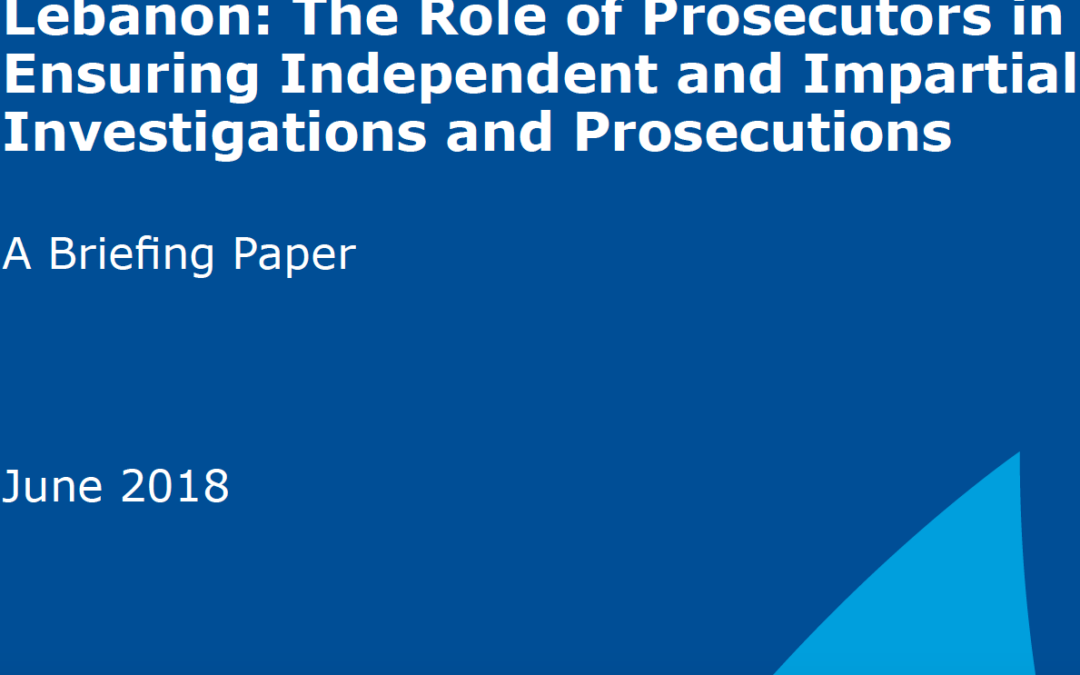
Jun 7, 2018
In a memorandum published today, the ICJ called on the Lebanese authorities to introduce comprehensive legal and institutional reforms with a view to ensuring that the Office of the Public Prosecutor (OPP) is strictly separated from the judiciary and judicial functions.
The reforms must also guarantee that the OPP’s independence and impartiality is fully safeguarded consistent with internationals standards, the ICJ says.
“The structure of the OPP, its role, status and functions are not in compliance with international standards on the independent and impartial functioning of prosecutors,” said Said Benarbia, ICJ MENA Director.
“The Lebanese authorities must ensure that the functions of judges and prosecutors are clearly separated and distinct and that prosecutors are not granted any powers to take decisions of a judicial character, including those relating to renewing police custody and ensuring oversight over police custody’s facilities, periods and conditions,” he added.
In the memorandum, the ICJ also formulates recommendations for amendment and reform of law and practice with a view to ensuring the administration of criminal justice in a manner that respects and protects human rights, due process and the rule of law.
The Code of Criminal Procedure and Decree-Law No. 150/83 on the Organization of the Judiciary do not provide for appropriate safeguards and limitations on internal and external instructions to prosecutors, do not adequately limit the power of the Minister of Justice in relation to the conduct of prosecutions, and, therefore, do not safeguard the real and perceived independence of the prosecution services.
If public faith and confidence in the integrity of the justice system is to be restored, the functional independence of prosecutors must be safeguarded from any undue or improper interference, including those emanating from within the OPP itself.
“The Lebanese authorities must ensure that the executive is prohibited from issuing instructions not to prosecute or requiring prosecution in a specific case,” said Benarbia.
“Any instructions to individual prosecutors regarding the conduct of a prosecution must be in writing, exercised transparently, and take into account established prosecution guidelines and the interests of victims and other interested parties,” he added.
Contact
Rola Assi, Associate Legal Adviser, t: 0096170821670 ; e: rola.assi(a)icj.org
Lebanon-Memo re prosecutors-Advocacy-Analysis Brief-2018-ENG (full memo in English, PDF)
Lebanon-Prosecutors memo launch-News-2018-ARA (full story in Arabic, PDF)
Lebanon-Memo prosecutors-Advocacy-Analysis Brief-2018-ARA (full memo in Arabic, PDF)
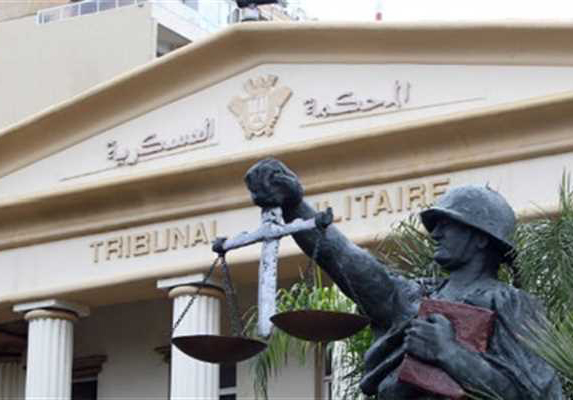
May 29, 2018
In a memorandum published today, the ICJ urged the Lebanese authorities to introduce comprehensive legal reforms to ensure the independence and impartiality of military courts and to restrict their jurisdiction to cases involving members of the military for alleged breaches of military discipline.
The country should transfer the competence of military courts to civilian, ordinary courts in all cases involving civilians and all cases involving human rights violations and non-military offences committed by members of security and armed forces, the ICJ added.
“Lebanese military courts have a long history of prosecuting civilians, including those critical of the military and the government, in trials that fall short of international standards,” said Said Benarbia, ICJ MENA Director.
“Lebanese authorities must prohibit military courts from exercising jurisdiction over civilians, even where the target or victim of the offence is military, as well as over all persons under the age of 18, with no exceptions,” he added.
The ICJ also called for legal and institutional reforms to be introduced with a view to ensuring the independence and impartially of military courts and the fairness of their procedures, including by ensuring that the selection, appointment, transfer and evaluation of military judges are based on transparent procedures and objective criteria, and that any disciplinary action against them is only pursuant to well-defined standards and respectful of all due process guarantees.
In the memorandum, the ICJ formulates recommendations for amending the Code of Military Justice with a view to enhancing due process guarantees, including by providing that individuals convicted by military courts have the right to appeal their conviction and sentence to the civilian courts of the ordinary court system, and that the nature of the review is to be substantive and based both on sufficiency of the evidence and of the law and to allow for due consideration of the nature of the case.
“Limiting the jurisdiction of the military courts and enhancing their independence and impartiality and the fairness of their procedures is required not only to establish and uphold judicial independence, but also to restore public faith and confidence in the integrity of the Lebanese justice system,” said Benarbia.
Contact
Rola Assi, Associate Legal Adviser, ICJ MENA Programme, t: +96170821670 ; e: rola.assi(a)icj.org
Lebanon-Memo re army courts-Advocacy-Analysis Brief-2018-ENG (full memo in English)
Lebanon-military courts memo launch-News-2018-ARA (full story in Arabic)
Lebanon-Memo army courts-Advocacy-Analysis Brief-2018-ARA (full memo in Arabic)
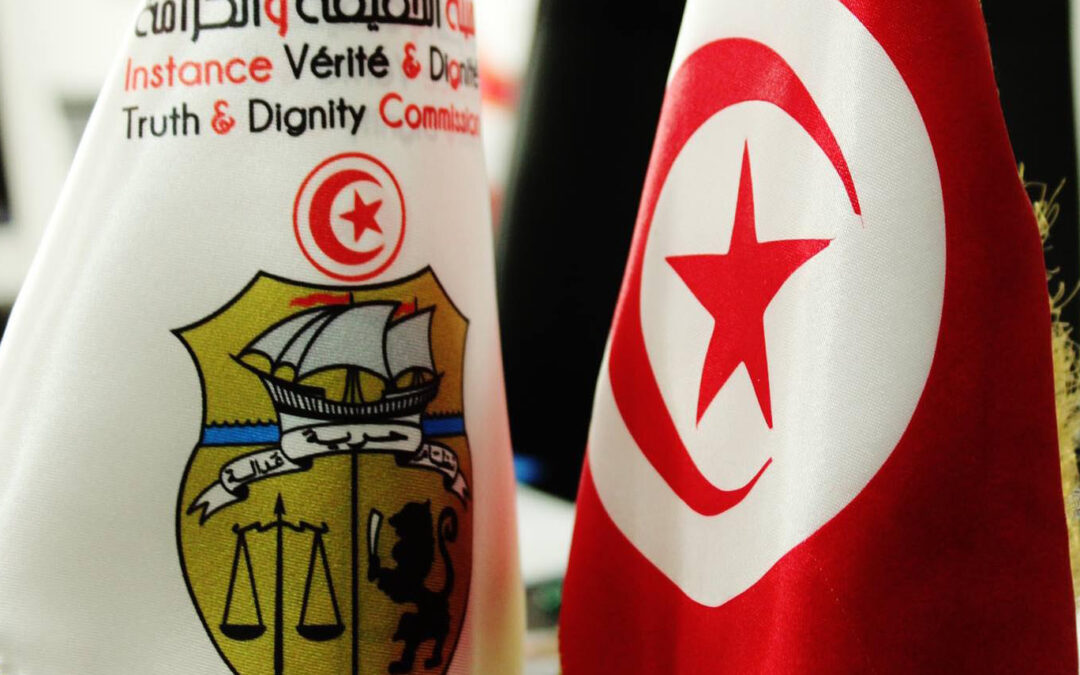
May 25, 2018 | News
The ICJ today called on the Tunisian Parliament to reverse its decision of 26 March 2018 and allow the Truth and Dignity Commission (IVD) to carry out its mandate for at least another year.
The IVD should be in the position to finalize its investigations of past serious human rights violations in the country and, when appropriate, refer cases to the Specialized Criminal Chambers (SCC), the ICJ added.
Since its decision, the Parliament has not considered or adopted any measures to address the legal and practical consequences, including how incomplete investigations by the IVD will be handled, how other investigations will be transferred to the SCC and by whom, how evidence will be preserved and protected, how the documents and the material gathered by the IVD will properly be archived, and what would happen if the IVD were unable to complete the drafting of the final report.
The initial four-year term of the IVD ends on 31 May 2018.
“It’s absolutely irresponsible for the Tunisian Parliament to thwart the whole transitional justice process and curtail the work of the IVD without providing any path forward,” said Said Benarbia, ICJ MENA Director.
“As one of the three branches of government, the Parliament must abide by Tunisia’s obligations under international law to establish the truth about past human rights violations, bring the perpetrators to account, and provide victims with effective remedies and reparation,” he added.
The March decision runs counter to all these obligations.
It denies the rights of victims, and broader society, to know the truth, including about the circumstances and reasons that led to decades of serious human rights violations in the country.
The IVD has not been able to finalize its investigations or produce its final report.
It also shields those responsible from criminal accountability. Only eight cases have so far been referred by the IVD to the SCC.
The fate of cases that have been investigated but are not referred before 31 May 2018 remains unclear. The IVD reportedly received some 62’712 complaints.
“The Parliament is abdicating its responsibility to respect and protect victims’ rights,” Benarbia said.
“Instead of playing cynical political games that can only foster impunity, the Parliament should reverse its decision and remove all the obstacles that might impede the IVD’s work in ensuring accountability for past abuses, ” he added.
Contact
Said Benarbia, Director of the ICJ Middle East and North Africa Programme, t: +41798783546, e: said.benarbia(a)icj.org
Background
Under the 2013 law on transitional justice, the IVD initially had a four-year term, with the possibility of renewal for a single additional year, on the basis of a reasoned decision by the IVD.
The 2013 law provided that the IVD’s decision on renewal should be submitted to the Parliament.
The law is however silent as to whether the submission of the IVD decision was simply a matter of notification, or required approval of Parliament to be effective.
In any event, 68 members of the Parliament voted on 26 March against extending the term of the IVD for another year.
Under its bylaws, for decisions of Parliament to be valid they must be adopted by at least 72 of its members.
The apparent lack of quorum for the Parliament’s 26 March decision has only introduced more uncertainty and confusion, further complicating the position for the IVD and others, including most notably the victims themselves.
On 24 May 2018, the IVD and the Minister in charge of relations with constitutional bodies, civil society and human rights issued a joint statement reiterating Tunisia’s commitments to the transitional justice process as provided by the Constitution.
In the statement, the IVD was requested to transfer all cases concerning serious human rights violations to the SCC, to establish criteria on the basis of which reparation for victims will be provided, to establish compensation criteria for the Victims Fund, and to send the final report to the President of the Republic, the President of the Parliament and the President of the Government.
Tunisia-IVD Parliament-News-2018-ARA (full story in Arabic, PDF)
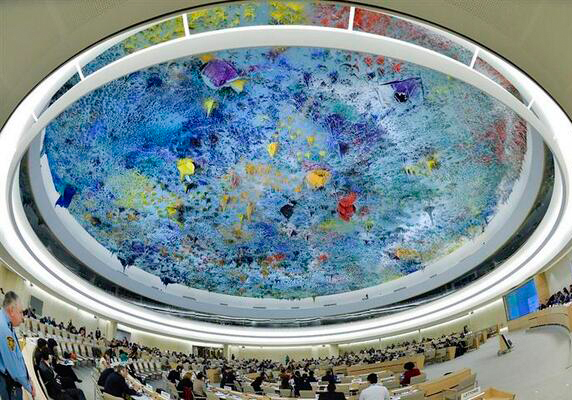
May 18, 2018 | Advocacy, Non-legal submissions
Speaking today at a special session of the UN Human Rights Council, the ICJ joined calls for an independent international inquiry into the use lethal and other force by Israeli security forces in Eastern Gaza.
The statement read as follows:
The International Commission of Jurists (ICJ) deplores apparent violations of international law by Israeli security forces during the past six weeks in Eastern Gaza near the border with Israel, in relation to demonstrations by Palestinians.
The ICJ is concerned at the many killings and serious injuries associated with the excessive, unjustified or otherwise unlawful use of force, including the killing of a number of children.
The ICJ recalls that international human rights law permits use of lethal force only when strictly necessary to protect life. The ICJ understands that Israel has taken the position that only the international law of armed conflict, and not international human rights law, was applicable, and that all lethal force used against protestors was justified. The ICJ insists that human rights law – and specifically, standards on the use of force in law enforcement contexts – was indeed applicable, and that the use of lethal force was in the circumstances wholly unjustified.
Excessive force, including lethal force, has apparently been used against unarmed persons who do not pose a threat to life. Irrespective of legal regime, such use of force is manifestly inconsistent with the principles of necessity and proportionality.
The ICJ joins the call for this Council to establish an independent Commission of Inquiry or similar investigation, to ensure accountability for serious violations of international law.
Update: The session concluded with the adoption (29 yes, 2 no, 14 abstained) by the Council of a resolution establishing a Commission of Inquiry.









